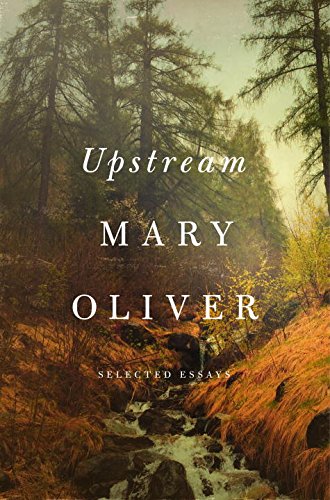
Hi and welcome to this week’s Lez Liberty Lit!
Things About Queer Books (And Other Books Relevant To Your Interests)
No women won the Nobel prize this year. In its 115-year history, only four black women and 48 women total have won. For some reason Bob Dylan won for literature, probably so a bunch of white men could congratulate themselves on pretending to be groundbreaking.
Some of the biggest literary news of the last few weeks is the doxxing of Italian writer Elena Ferrante, because I guess why respect someone’s right to privacy even though she’s made it clear over and over how much she values her anonymity when instead you can broadcast information about her taxes and how her family did in the Holocaust because you, a man, essentially want to punish her for being successful. No I am not linking to the NYRB piece itself. But Ann Friedman wrote about the similarities between Elena Ferrante and Kim Kardashian, and explores “the bigger picture of privacy — and how women are punished when they are perceived as revealing either too much or too little about themselves.” (Notably: ‘The writer Laura Snapes summarized the worst reactions: ‘Elena: so private she ‘deserves’ to get doxed. Kim: so public she ‘deserves’ to get robbed at gun point.’”) Jia Tolentino also drew conclusions about the intrusions both women have experienced, noting, “The problem is larger, I think, and trickier, and located earlier in the formation of a woman’s ambitions. As it relates to non-celebrities, at least, the problem is not so much about what happens to women after they become established and successful. The problem is that a woman retains so many obligations to so many people that she must, almost always, strip-mine her selfhood to achieve that success and security in the first place.” Hannah Gold writes about how the situation illustrates “an instructive distinction here between one who has something to say, and one who merely wants to be the person to say it.” I also loved Charlotte Shane’s series of tweets about it.

What we write about when we write about witches:
“When we write witches into our stories, that is what we’re writing about: power. When we write witches, we are writing about our expectations of women, and what we hope—and fear—they would do if they had access to power. Fictional witches act as ciphers that help us understand something that seems at once mysterious and brilliant and sinister: a woman’s ultimate, unlimited potential… realized.”
Queer YA book covers often walk a line between subtle and not. At Book Riot, Tirzah Prince discusses what’s out there right now and “all sorts of covers for all sorts of readers.” Plus, 10 hilarious gay book covers from the 1990s.
We need more trans stories.
There are only a few queer YA books by or about Asian people but here are five to add to your reading list.

Upstream, a recent essay collection from Mary Oliver, contains “meditations on inescapable, physical life and the world beyond any screen.” At the Millions, M. Sophia Newman notes: “This book is thought-provoking, and it does go somewhere. Where it goes is ultimately up to the reader — whose mind, after all, is the soil in which Oliver’s contemplative turns of phrase will bloom. Oliver expresses clearly that nature is our equal, if not our better, and that the nonhuman world offers a wellspring of insight to those who pay careful attention to it.”
Mary Gaitskill was profiled at the LARB.
An unprecedented number of people want to visit the Smithsonian Institution’s National Museum of African American History and Culture, in some cases lining up at 4 am to get passes.
Reading is physically good for you.
Check out these personal narratives from women’s prisons.
“[B]eing queer in the library is not as safe as it should be.”
What if a map of New York paid homage to women?
Shirley Jackson’s work should be seen as proto-feminist.
Queer books are often banned.

Book Things To Do
31 October, online: Submissions for #Trans, an anthology about trans and non-binary experience, are due.
Know of a queer event with literary merit? Send it to us! The Liberty Lit is bi-weekly.
Books! They are really great. You just won’t believe how great they are. You may think that the Internet’s great, but that’s just peanuts compared to books. In Lez Liberty Lit, we talk about queer books and literary shit that’s happening that you should probably care about.
The name “Liberty Lit” was inspired by the short-lived literary journal produced by Angela Chase at Liberty High School in 1994.








Comments
Controversial opinion: I’m not sure I’m that mad about the “reveal” of Elena Ferrente. Most artists — especially successful ones — who produce anonymously are outed. Why was no one up in arms when JK Rowling was revealed to be the anonymous author behind ‘The Casual Vacancies’? Further, it’s not like her identity was revealed by hacking; this was old school, discovered by following a paper trail (as far as I know). I am hesitant, for obvious reasons, to say she “deserved it,” but I do think that this is a choices and consequences situation: by choosing to produce work in a public capacity, by doing so anonymously, by discussing anonymity in her interviews — I think her eventual identity reveal was a likely consequence. While she neither deserved it nor needed to want it, I think it’s was a bit foolish to think she could simultaneously be this successful and remain anonymous.
Would it be fair to say you feel entitled to a person’s identity as long as they act in a public capacity? And that while the author may not have deserved the doxxing, her readers and the general public deserved access to this information?
Cause I can’t get behind that. No.
One issue is that JK Rowling was already a public figure when outed as Robert Galbraith… another is that one of the themes of the novels is one of the character’s ceaseless quest for… privacy. This author had no idea that her novels would become an international phenomenon and went to great pains to shield her identity and that should have been respected. There was no earthly reason why her identity needed to be known especially given the actions that she took to remain Elena Ferrente.
A comment I saw on Jezebel
“A group of mostly white men decided their favorite lyricist should be Nobel Laureate. His music speaks to the experience of older white men, so they contorted the category to suit him. And that folks is privilege in the most purely distilled, disgustingly oblivious form. “
“[B]eing queer in the library is not as safe as it should be.”
This isn’t surprising to me. I pursued and completed my MLIS about five years ago and I distinctly remember exactly how large groups of the YA class (most primed to become YA/Children’s librarians) responded to King and King. Cinderella? Perfectly fine! …but, oh, any LGBT content. tldr: there are a lot of really awesome librarians… but, like any profession, some can suck.
VOYA, as I recall, was still going on as of last weekend–where their…5th? Apology went up but they still blocked comments etc. Its a wreck.
I don’t know, I’m half considering starting doing audio book reviews on predominately LGBT books coming out with first-chapters-read. I don’t know if I’m comfortable enough in my own skin to do it–but I keep thinking about it as the Voya Trashfire keeps in conversation (along with the ways that reviews can nudge books to, in my opinion, inappropriate separate sections (which, urgh, just sort of reflects the original Dewy—which is why most are updating it!)
Another queer librarian (in training) here and I think you should do it!! I put Lumberjanes and a non-fiction book for kids about Pride on display at my library this week and it felt awesome!
I might do a couple and see how it goes. Or I wil after this weekend becaus this end of week was rough and if i did any videos right now I’d probably look like some demon.
Perfect for Halloween, not so for gleeing about queer books (hopefully with happier endings!)
There’s a really fun facebook group for librarians if you want a link–very cheery group! and a good place to ask questions if you’re in ??? middle land
I’m actually glad that Bob Dylan won the Nobel Prize, he deserved it.
I’m just upset about Elena Ferrante, I liked the mystery atmosphere around her and I just feel sorry for her because she wanted her work to speak for herself and someone didn’t respect that. But I quess it was inevitable anyway.
Upstream looks really interesting and I have to check out books about women’s prisons! I have been actually looking for something alike for a while.
Oh, and after that artictle I realy can’t wait to finally read “We Have Always Lived in the Castle”!
yesss thanks for tending to my newfound Shirley Jackson obsession, Carolyn
Also, re the challenged book list: How the hell does Fifty Shades of Grey end up on a high school reading list?
You know I only had the vaguest of ideas who Shirley Jackson was until like two weeks ago, and now suddenly I’m seeing references to her everywhere. Maybe because horror stories are seasonal? But anyway, I can’t wait to read that biography, it fits perfectly with my reading theme for the year, biographies-about-women-writers-written-by-women.
I’ve been really shocked by colleagues’ reactions to both the Kim drama and Elena Ferrante’s unmasking. I’ve seen a lot of otherwise decent people be viciously gleeful at ‘them getting what they deserve’ – I really, really don’t get it. Fine, you may not like them, but they’ve done no harm to anyone!
On the other hand, I for one am glad Dylan won the prize. His themes of alienation and searching, and his anger at the unfairness of the world, as well as his care for the underdog, always spoke to me growing up, and gave me courage when I was coming out, among other things. Not to mention he has absolutely beautiful lyrics.
So many good links this week!!
Thank you Casey!!